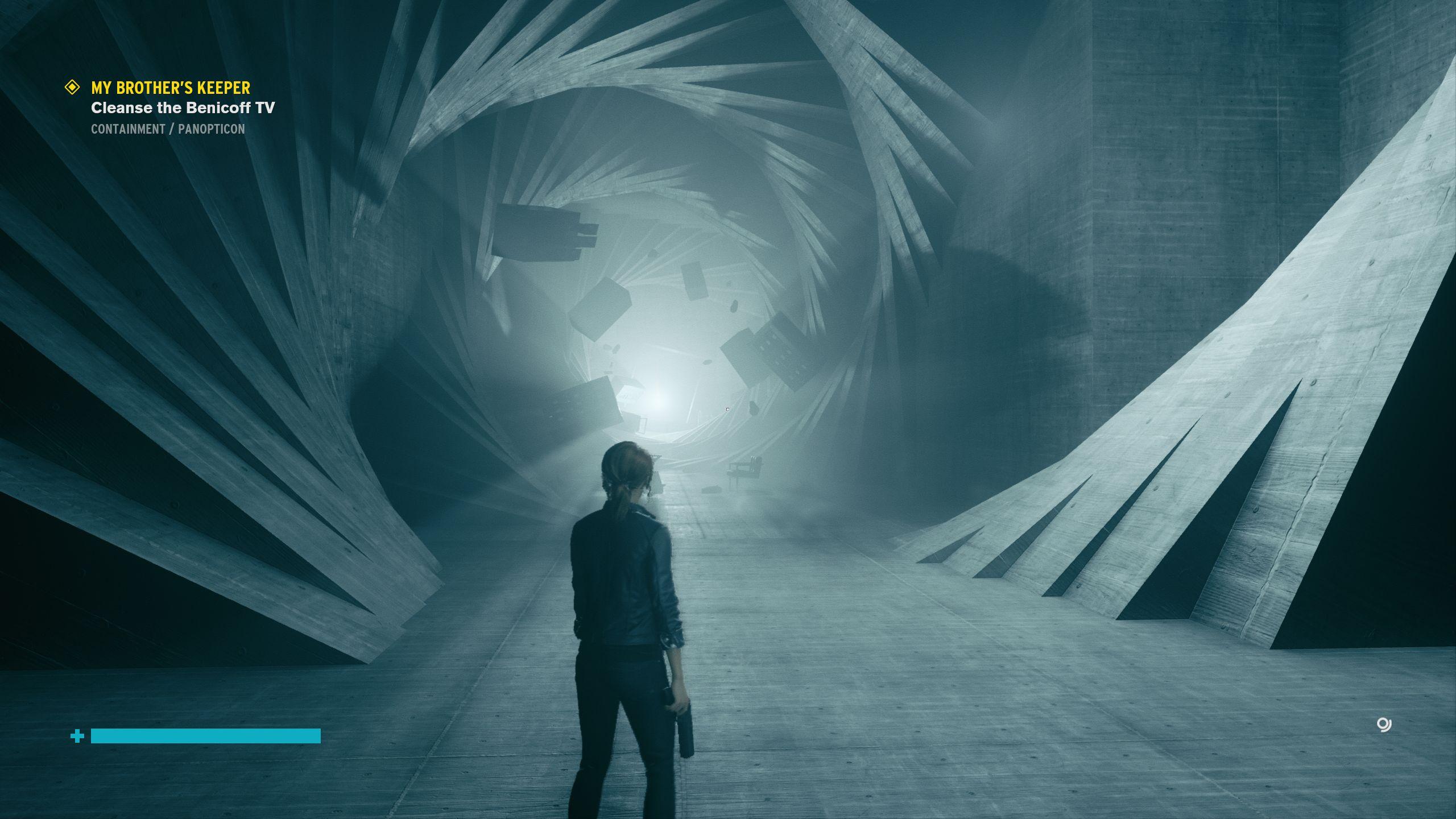
Sep
Control – Review
In Control, you are the new director of a federal bureau dedicated to the paranormal. Did we transcend reality? Here’s what we think.
What lies beyond the realm of human perception, beyond the symbols we surround ourselves with and the limits of the dimensions we occupy? It’s an eerie thought to think, one that inspires wonder and dread at once. That’s exactly what Control aims for, and it almost hits the mark—almost.
In Control, you play as Jesse Faden, a woman mired in mystery. So much of Control relies on surprise and secrecy, that even the premise of the game says little more than this: Jesse is the new Director of the Federal Bureau of Control, whose headquarters are located in New York City, in a building known as “The Oldest House”.

As the new Director, Jesse is looking to establish control (pun not intended) in The Oldest House, which has fallen prey to an otherworldly force of corruption known as The Hiss. Jesse also has personal reasons for venturing into the building in the first place, and this forms the core stem of the story.
Nothing is quite what it seems in the Oldest House. Remedy Entertainment has crafted a world within a building, and what a weird world it is. Shiny and polished office corridors, ominous rambling noises, stark red lights, brutalist architecture, floating employees, the distorted ringing of a bakelite telephone—rarely do games offer an aesthetic as authentic and unique as Control.
There’s no game that looks or feels quite like Control does. The game is particularly elevated when you play it with a raytracing-capable GPU on PC, which adds a subtle-yet-important life to even the drabbest walls and floors.

In Remedy tradition, Control is a third-person shooter underscored by a narrative that straddles noir and weird fiction. For all the logs you pick up and paranormal mysteries you uncover, the heart of the game lies in its combat.
And the combat is top-notch. It starts out a bit slow, as your only weapon is a pistol. Coming hot off of Gears 5, I found it jarring that the game stubbornly refused to let me snap to cover or regenerate health. It feels a bit old-school. And then, the game’s combat truly opens up when it gives Jesse the supernatural powers that transform her into a hurricane of a devastation.
I’ve already written about how incredible the powers of Control feel, where an average fight can involve smashing an enemy with a fire extinguisher and then sniping their corrupted head off while levitating in the air. But even apart from this sheer sense of power, Control exhibits a striking intelligence in the design of its battles.

With no ammo to collect (it regenerates on its own), you are free to use your weapons as extensions of your body. As your paranormal powers use a separate pool of Energy, which regenerates at just the right rate, you are free to alternate between using guns and paranormal powers.
The interplay between Ammo and Energy is what makes Control’s hectic and chaotic battles feel like a harmony. You can toss object after object at your enemies, and when your Energy runs out, you can pick them off with your gun. By the time you’re low on ammo, your Energy will have gone up again, ready for you to raise a shield or toss more items.
If you’re low on health, you’ll have to run straight into the fray and pick up health pellets dropped by damaged enemies.
The result is that there’s no downtime whatsoever in Control’s battles. There’s no waiting behind cover for your health to recharge, or for your gun to reload. Survival lies in how well you can keep up the offence, while strategically avoiding (or preventing) enemy attacks. It’s a game that actively requires you to be both quick on your feet and quick in your wit.

Between the many, many bouts of shooting, the game offers you time to explore and read documents from the Bureau. Sam Lake’s writing shines here, allowing you to dig deeper into a bizarre world where symbols, the paranormal, and the otherworldly work together to conjure a weird atmosphere that you never really catch a foothold on. Of course, the game is also peppered with Remedy’s characteristic humour, manifested most of all in hammily acted videos.
It’s a bit sad, then, that the overarching story offers very little to be invested in. Character interactions are stymied by stilted and awkward facial animations, and what conversation does take place in them is clinical and sterile. By the time the final credits rolled, I was neither entirely sure of what I’d experienced from a narrative perspective, nor did I care all that much.

Control is worth experiencing for its rollicking, ravaging action, as well as its stately visuals and ‘new weird’ vibe. It’s not entirely satisfying on its own, which makes me wonder what Remedy could have in store for a main course.
Developer: Remedy Entertainment
Country of Origin: Finland
Publisher: 505 Games
Release Date: 27 August 2019 (PC, PS4, Xbox One)
This review of Control is based on a copy provided by the publisher. The PC version of the game was played for this review.
Check out more reviews from Into Indie Games!
